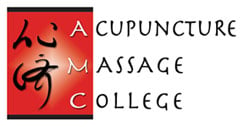Essentials of Chinese medicine include the basic theories, diagnostic methods, therapeutic practices, and the principles of health preservation and rehabilitation of the traditional Chinese medical tradition.
The basic theories and methods of acupuncture and moxibustion are integrated into the essentials as well as the range of Chinese herbs and herbal formulas commonly used in clinical practice. The essentials of Chinese medicine elucidate treatments of commonly and frequently encountered diseases in internal medicine, surgery, gynecology, pediatrics, and ophthalmology.
Chinese medicine is a complex conglomeration of teachings, originating in China nearly 10,000 years ago, and since then continuously developed further. The essentials of Chinese medicine were recorded in writing for the first time around 2000 BC.
The core elements of Chinese medicine have their origins in Buddhism, Confucianism and Taoism. Yin and yang, Five Element theory and the concept of qi originate from Taoism and are the leading principles of Chinese medicine.
The human body forms an integrated whole with all its organs and the innumerable energy paths, or meridians. This unity plays a crucial role concerning overall health. Chinese medicine deals with diverse practices that promote the preservation of this unity.
In addition to basic theories and diagnostic methods, Chinese medicine elucidates therapeutic methods based on symptom differentiation.
Acupuncture & Massage College’s Oriental Medicine program incorporates coursework teaching the essentials of Chinese medicine. Topics focus on the basic theoretical framework of traditional Chinese medicine including: Yin/yang theory, Five Element theory, Vital Substance theory, Zang-Fu theory, and causes of disease.
AMC’s coursework and clinic practice in the essentials of Chinese medicine provides education and training in acupuncture and herbal medicine. In the tradition of Chinese medicine, herbal formulations work with acupuncture treatment to address particular health conditions, especially functional disturbances and chronic organ disorders.
Graduates of the Oriental Medicine program incorporate their education and training in the essentials of Chinese medicine into their medical practice, in herbal prescribing, diagnosing pathology syndromes of the organs and the treatment of conditions seen commonly in acupuncture clinics including: Respiratory problems, allergies, digestive disturbances, gynecologic problems, and acute and chronic pain conditions, as well as enhancing overall health and wellness.
For information about Acupuncture & Massage College’s Oriental Medicine and Massage Therapy programs call Joe Calareso, Admissions Director, at (305) 595-9500. Sept. 9.

 (305) 595-9500
(305) 595-9500






